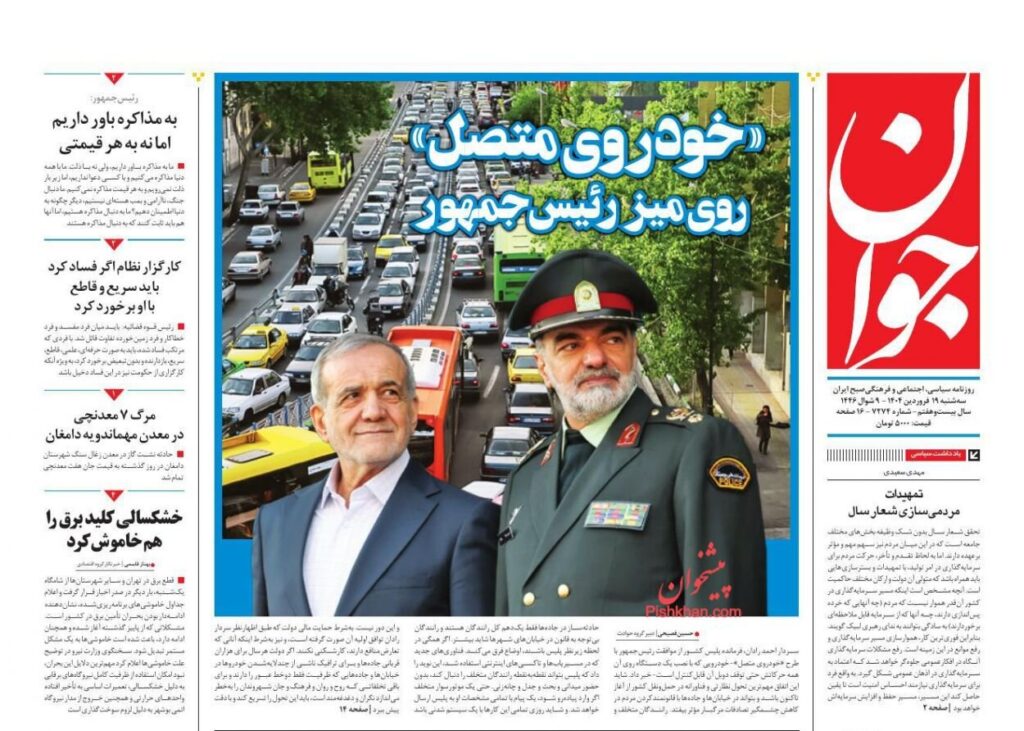The Java newspaper has spoken about the dialogue between Iran and the US being the hottest topic in the media and politics in recent weeks.
The main point on this point is distrust in the United States because it failed to comply with the ambiguity of its commitment and negotiation outcomes, as in previous consultations. Now, the logic of negotiations entails that the US should take steps to verify the negotiation process first, in order to reassure Iran. In fact, Ball is now in the US courts, and the White House must take the first step within the framework of taking practical action on its previous commitment to build trust with Iranians to ensure the continuation of negotiations. More precisely, Iran’s pursuit of indirect negotiations is an opportunity to test the United States, and Iran’s foreign policy should also be wise to monitor US actions and avoid changes to negotiation strategies. It is clear that the US is using threat and sanctions tools to force concessions on Iran, and if Iran adopts rebellious policies at the same time as negotiations, Iran will hamper the effectiveness of the tool as it shows that unilateral threats cannot weaken or change its position.
Siasat-e-Rooz: Puzzle dimensions
Siasat-e-Rooz has dedicated his compilation to US actions and Iran’s appropriate response. It wrote: Looking at the actions of the Americans, they show that in addition to playing customs games to disrupt the global order and maintaining destructive unilateralism, they have launched a series of media and propaganda claims that convey the illusion that they are ready for military choices against Iran. The actions of the Americans show that they are under the illusion that through negotiation and atmosphere of war, they can take Iran to a “subordination table” like some countries and destroy Iran’s military and nuclear capabilities. The main point is that the slogan of American military choice focuses more on hidden goals than on actual actions. Therefore, maintaining military preparedness, demonstrating defense capabilities, and invigorating diplomacy are essential as a critical response to any threat. Remember that the United Nations is passive in the face of threats. This is because there was no response to Trump’s military threat to Iran in this regard, and no meeting was held at the Security Council.
Ettelaat: Some outlets are increasing tension
Etterat wrote about the rise in tensions between Iran and the United States by several hard-line Iranian media. Efforts to alleviate tension and launch indirect negotiations are underway, but some media have incited the flames of tension through provocative articles. In an article to the US president, Hardline newspapers pointed out some issues that could only lead to increased tensions. The article drew a response from Fox News, who said it should not negotiate with Iran until it stops threatening to assassinate Trump and other American officials. Such a provocative article comes from a time when the Israeli Prime Minister’s Office announced during a meeting with Trump that Netanyahu would discuss the threat of Iran and the International Criminal Court. Netanyahu also appears to be unhappy with the decline in tensions between Iran and the United States and is taking advantage of any opportunity to increase American pressure on Iran.
Arman-e-Melli: key to exit from Iran’s sanctions
The falling oil prices and the negative impact of Trump’s new sanctions and policies have made the situation even more difficult for Iran than in the past. In these circumstances, Iran must face economic, social and political challenges that put more pressure on people and the economy than ever before. Following the growing sanctions and economic pressure, the Iranian government has sought to find alternative ways to reduce its dependence on oil revenues and ensure economic benefits. Iran’s efforts to open diplomatic channels and negotiate with other countries are also continuing. These negotiations could be an opportunity to restructure economic and trade relations with the outside world and reduce the negative impacts of sanctions. However, the Iranian government must proceed carefully and wisely on this path and focus on interacting with other countries to secure national interests in the long term. Given the current situation and economic forecasts, experts believe that a comprehensive and up-to-date strategy to protect the national interest and strengthen the country’s economy is currently considered a requirement.

